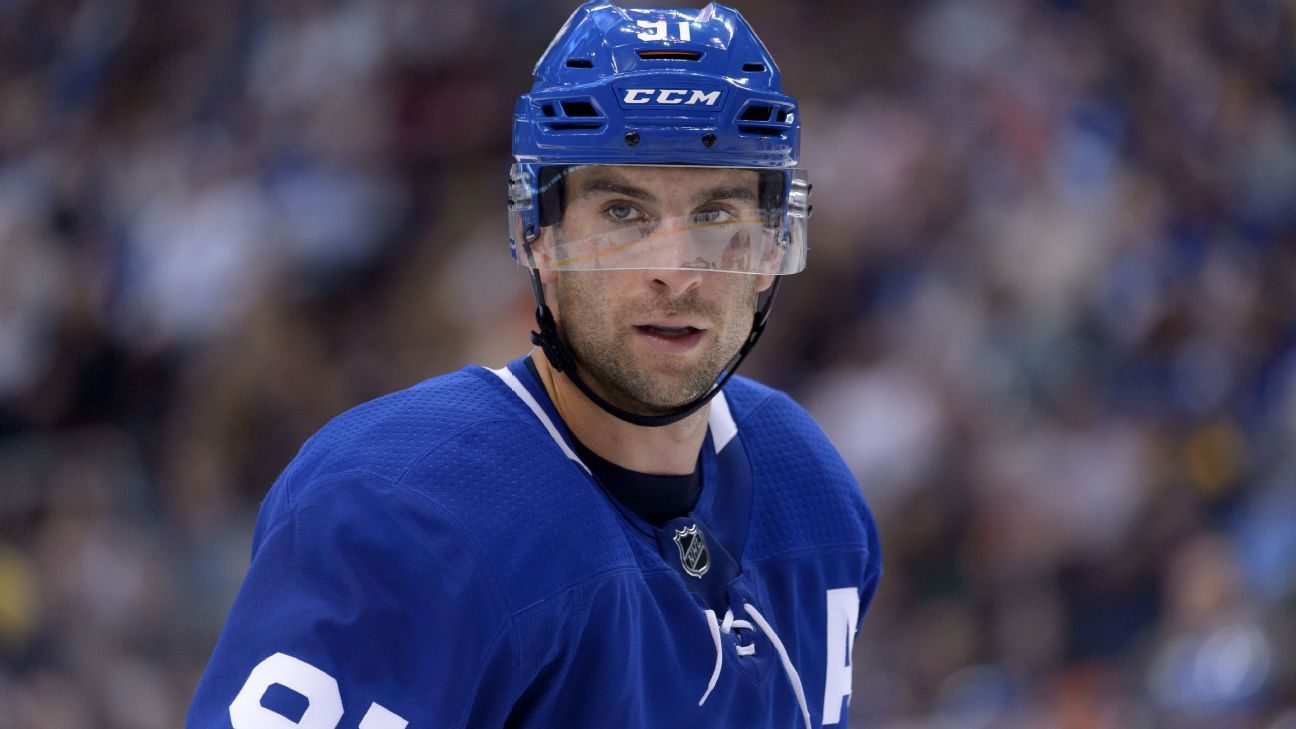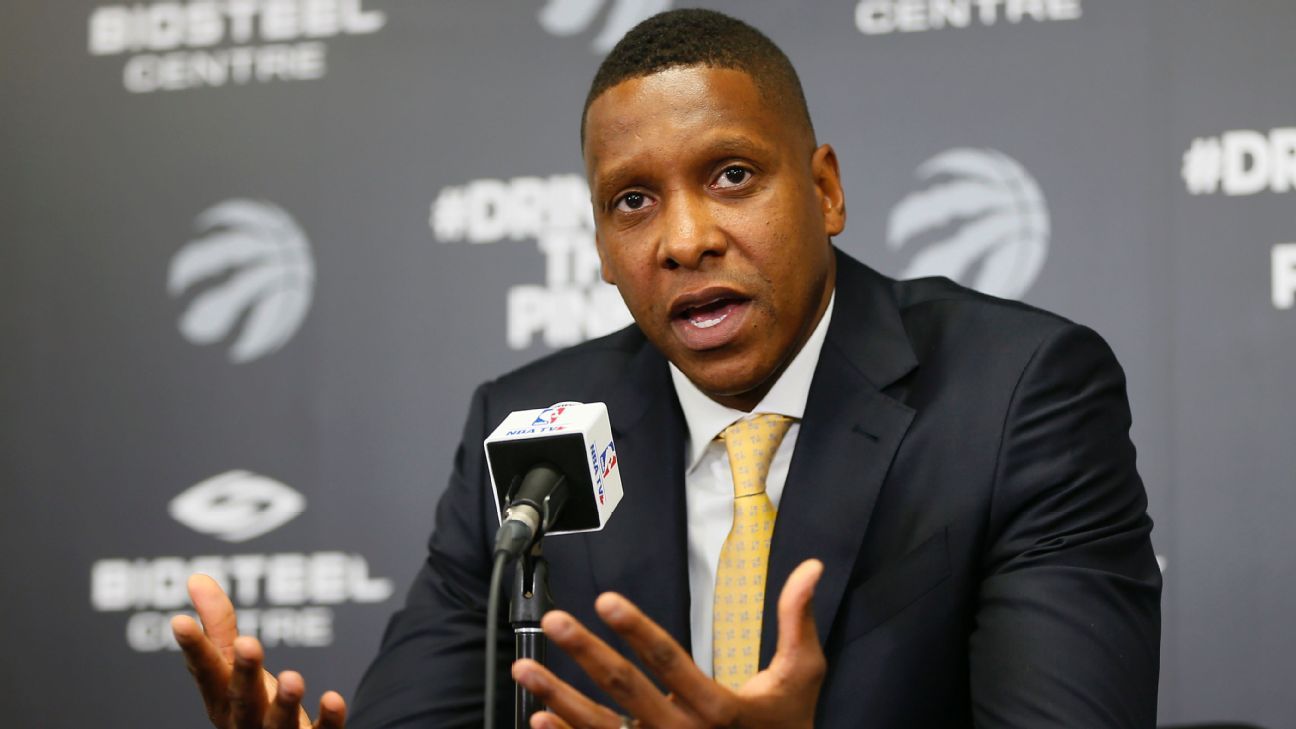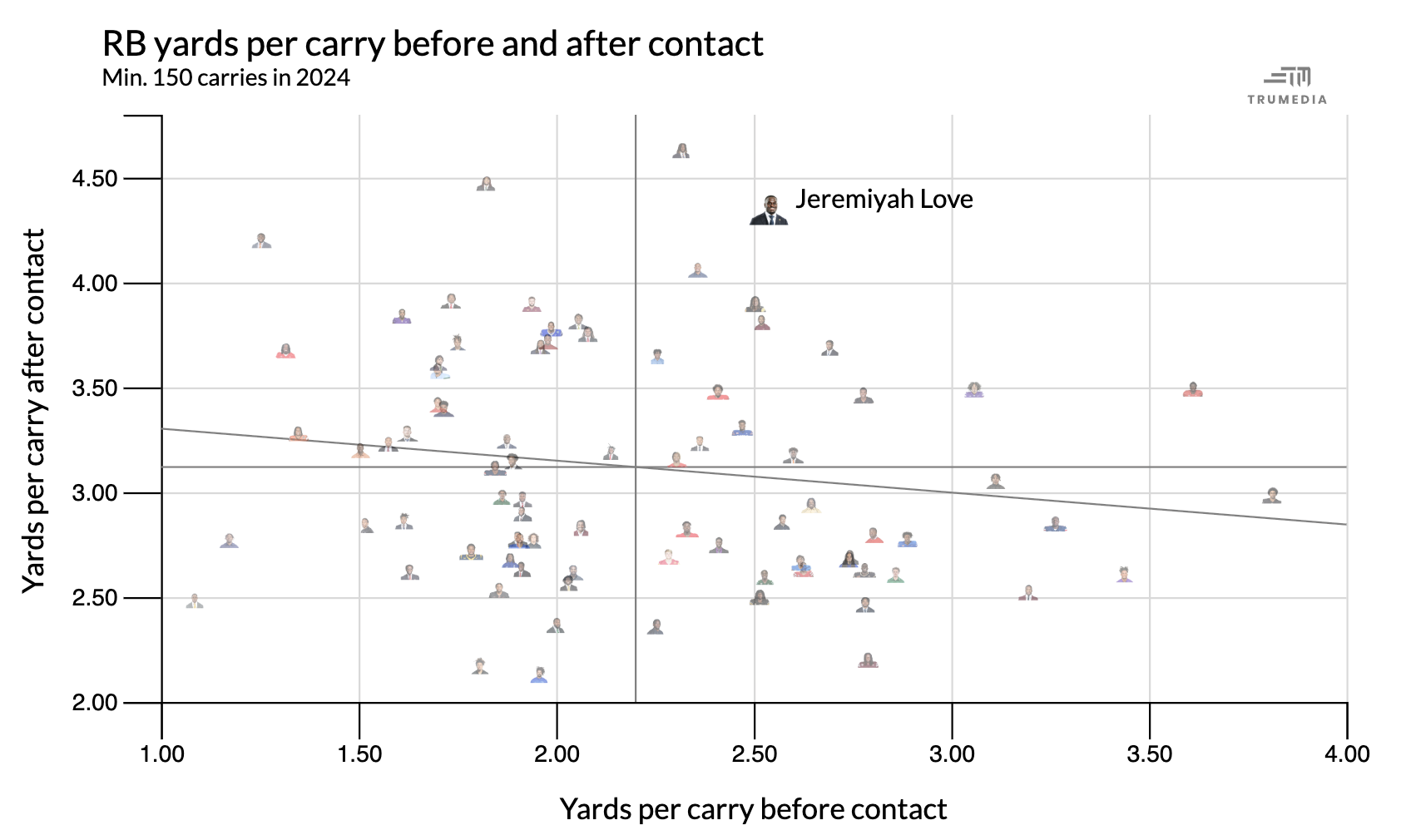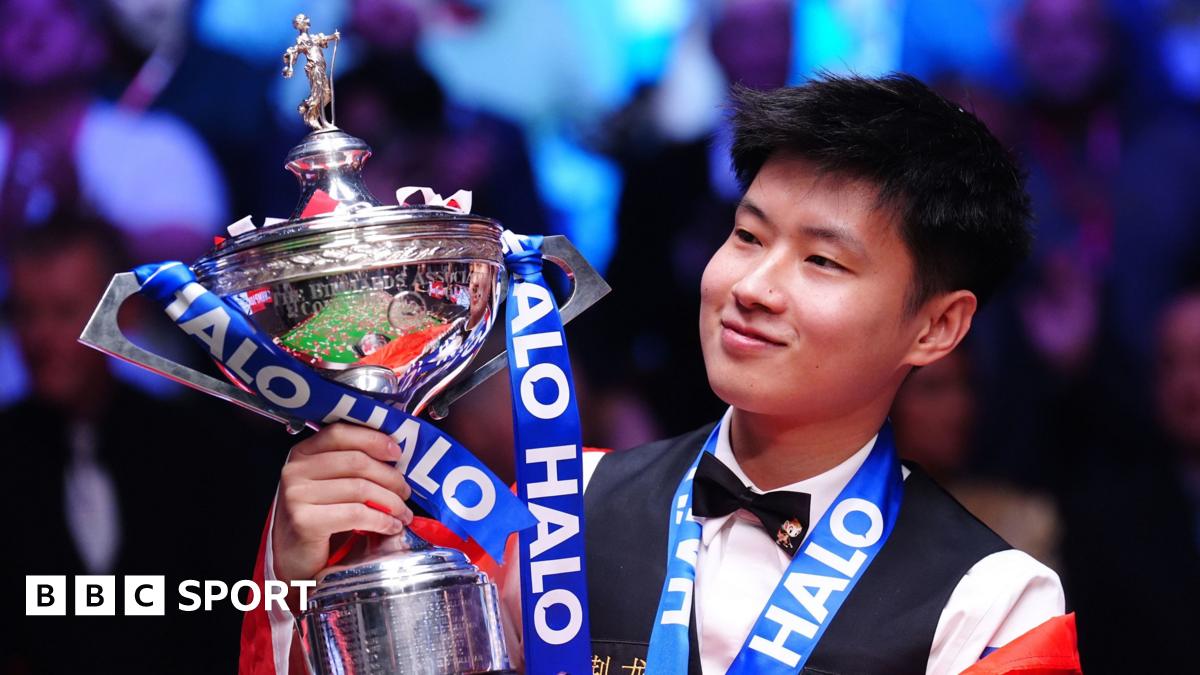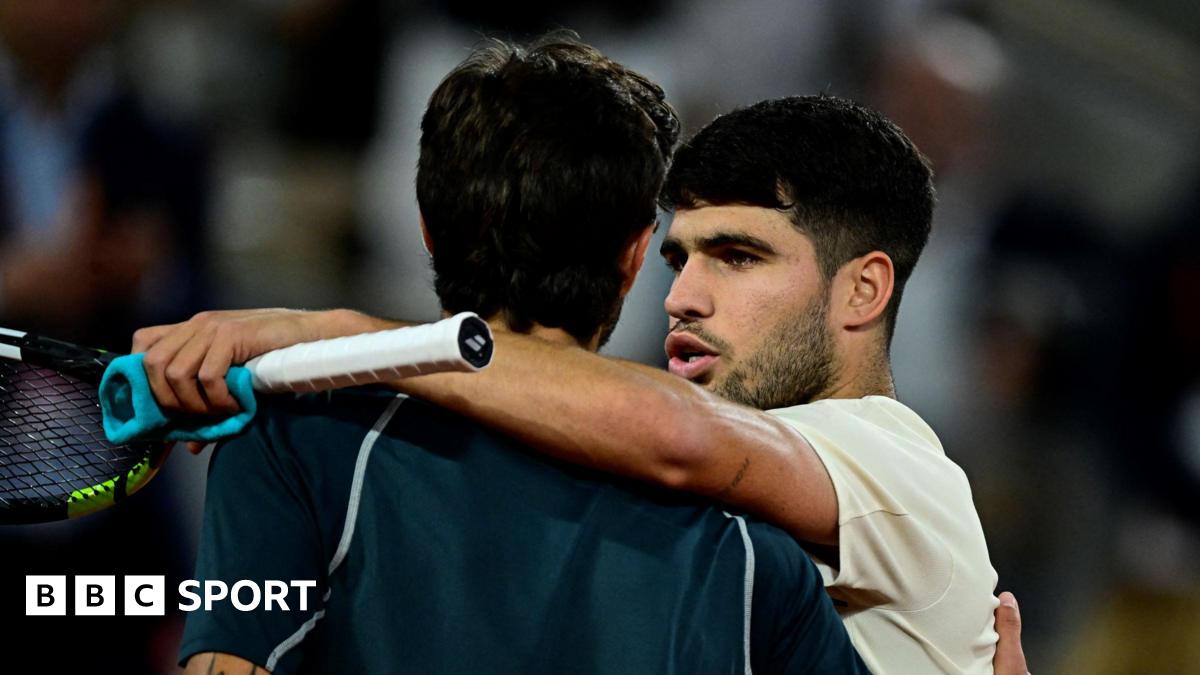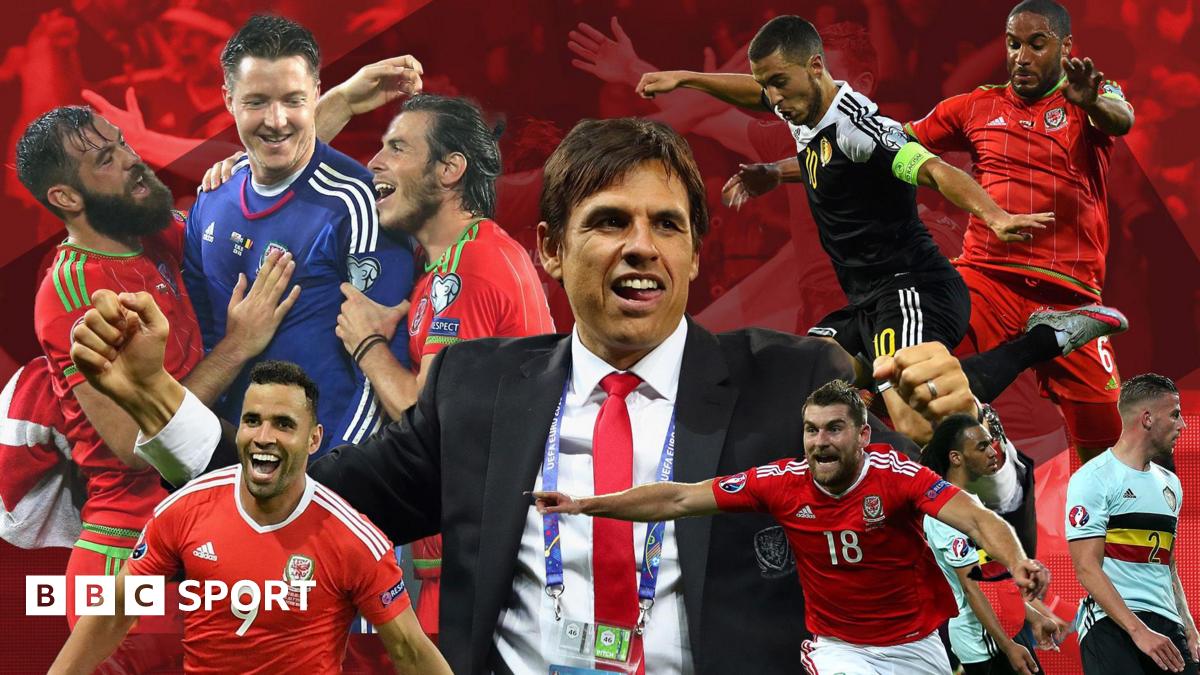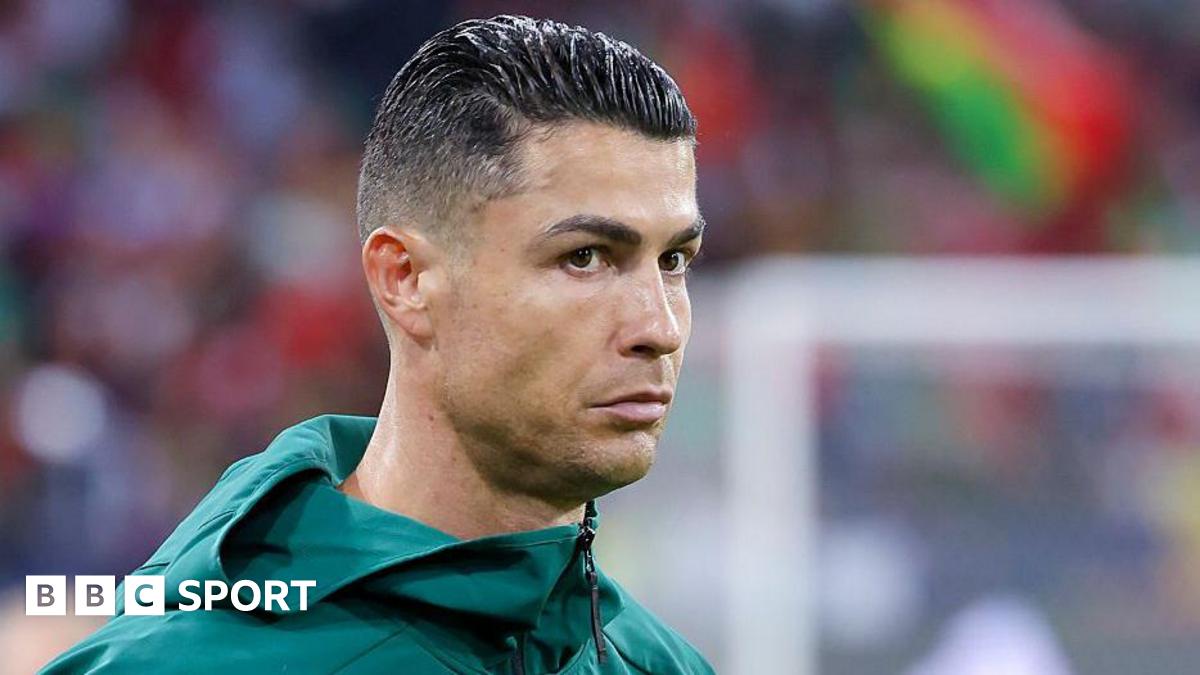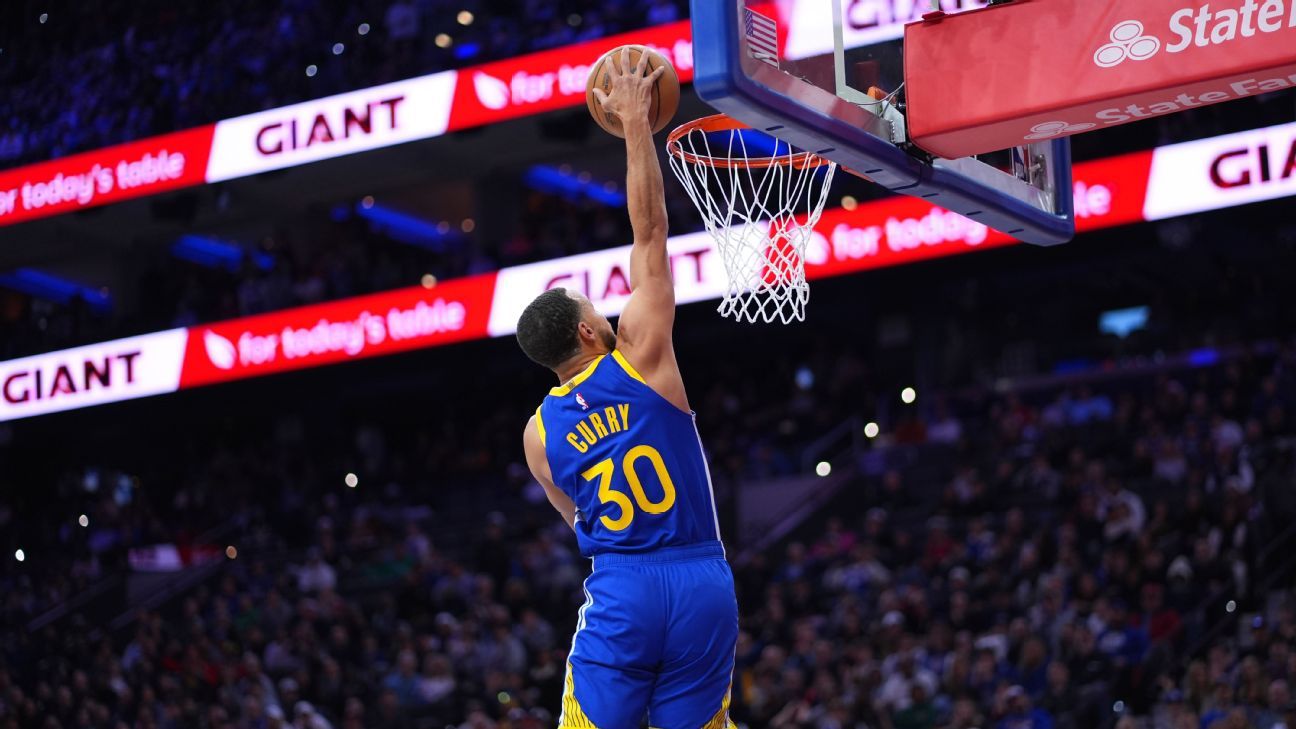Multiple Contributors
Jun 27, 2025, 11:06 AM ET
We've reached the knockout rounds of the 2025 FIFA Club World Cup, and the tournament has given us so much to talk about, celebrate and criticize since Inter Miami and Al Ahly battled to a 0-0 draw at Hard Rock Stadium. We've had shocks, surprises and stunning scorelines; we've also had difficult weather, uneven attendance and some lackluster pitches, too.
So, with the knockout rounds set to start Saturday in Philadelphia when Palmeiras take on Botafogo, we asked our Club World Cup reporters for their thoughts on the good, bad and ugly of the 2025 tournament so far, as well as their picks for who will win it all at MetLife Stadium on July 13.
Has the Club World Cup been better or worse than you expected?
Rob Dawson: Better. The attendance has been good, for the most part, and there's been enough intrigue around the games to keep it interesting. It would have been bad for the tournament if the UEFA clubs had blitzed everyone else. The South American teams and their fans have made it a spectacle.
It was obviously never going to compare to a World Cup, but there has at least been a flavor of it. It's also important to remember that this is the first edition of the expanded Club World Cup: Attitudes might be very different in eight years.
Gab Marcotti: It was so tough to know what to expect partly because it's a new tournament, and partly because of the rushed way it was organized. But the football itself has been reasonably good. We've learned that there isn't some sort of huge gulf between Europe (and South America) and the rest of the world, despite the massive imbalance in resources. Other than Auckland City (but they made up for it in the third game), the only team to really get blown out were Atletico Madrid.
Fans of African and South American teams brought a ton of color and proper tifo, so their games, at least the ones I attended, felt very much like "real" games. Maybe my expectations weren't very high, but I think they showed it's a viable competition.
Mark Ogden: It has been better, because the South American teams have shown up and jolted some of the European heavyweights out of their complacency (and, perhaps, arrogance) in thinking that they could coast through the competition and bank the huge prize money for reaching the latter stages. That may still happen and we might end up with a Champions League quartet in the semifinals, but Flamengo, Botafogo, Palmeiras and River Plate have all risen to the occasion -- so did South African champions Mamelodi Sundowns -- and it's made this competition feel like a genuinely global event.
But we can't escape the fact that attendance has been worse than anticipated. FIFA president Gianni Infantino should take the blame for that because he has driven the whole tournament, from the match scheduling, the venues, even the teams that have taken part (hello, Inter Miami). Had more games been staged at smaller MLS venues rather than huge NFL stadiums, the games might just have been played to a full house, making for a better spectacle.
Lizzy Becherano: The Club World Cup has slowly exceeded my expectations on and off the field. Prior to June 14, concerns about the level of football and lack of support dominated the narrative. Now, after witnessing Boca Juniors supporters at Hard Rock Stadium and Inter Miami's shocking victory over FC Porto, this feels like an actual competition. Botafogo triumphing against Paris Saint-Germain or CF Monterrey holding Inter Milan to a 1-1 draw allowed spectators to believe each team showed up to this tournament wanting to prove their worth and the value of each league. This isn't the pre-season tournament or Europe-dominated competition many anticipated.
Though FIFA can continue to improve certain aspects of the Club World Cup, maybe considering a different point in the year to avoid player exhaustion and weather concerns, this first edition proved international interest for these matchups.
Alex Kirkland: Better. Yes, there have been lots of predictable negatives, notably the impact of the heat and afternoon kickoff times on players' performance, and the fan experience. But a lot of the games have been really fun to watch, and the sight of Brazilian, Argentinian and Mexican sides going up against -- and often competing with -- European teams has been refreshing. It's the first edition of this tournament in this format, and given that, it's gone about as well as could reasonably be expected. And it should get even better in the knockout stages, with more at stake.
Paulo Cobos, ESPN Brazil: Worse. South Americans, especially Brazilians, have reason to celebrate. But the fact is that the technical level of play has been nothing special, many stadiums are worryingly empty, and the suffocating heat has been a serious problem.
James Olley: Elements of it have surprised me, but overall the tournament has been more or less what I expected: mixed attendance figures, complaints about the heat and the pitches, tired European players, and a lukewarm domestic reception. The positives have largely come from the South American sides injecting a real sense of passion and determination -- both on the field in wanting to rival the Europeans, but also off the pitch, where large traveling supporters have made the host cities feel like they do during a major international tournament: an exciting blend of colors and cultures.
The tournament was always too big at 32 teams, but there have still been moments that will live in the memory, perhaps creating continental rivalries that can give the Club World Cup a proper heritage in time. What has surprised me, though, is the lack of exposure in some cities. It varies, but in many cases, marketing of the tournament is minimal and finding the games on in a bar isn't as straightforward as it should be.
1:09
Burley: Don't judge teams on Club World Cup performance
Craig Burley explains why you can't use the Club World Cup to determine which sides are stronger than others.
Ricardo Carino, ESPN Mexico: It's been 100 percent better. Logic doesn't exist in this tournament. The strongest teams have been surprised by the smaller clubs, and this has caused some of the favorites to return home early. It's a fact that European teams are on the right track, but their stars and their million-dollar salaries haven't been fully reflected on the pitch, nor in some of the results we've seen these past few days.
Best player so far, and why?
Dawson: I think Thembinkosi Lorch has impressed for Wydad AC. The 31-year-old South African forward caught the eye in his first game against Manchester City and gave Pep Guardiola's young back four a number of nervous moments. On a different day he might have scored twice as Wydad gave City's problems on the break in the middle of the first half.
Lorch did find the net in the second game against Juventus, although Wydad were eventually beaten 4-1 to seal an early exit from the tournament. Lorch, though, can be happy that he made the most of his time in the spotlight.
Marcotti: Don't know about the best, because the stupid way TV rights were assigned means that it was actually difficult to watch most of the games on anything other than my phone or laptop (which sucks), but I'll mention two guys who stood out. Al Ahly's Danish-Palestinian striker Wessam Abou Ali, who got a hat trick against Benfica, and Boca Juniors' Miguel Merentiel, who looked great in the first two games only to fluff his lines in the third.
Ogden: Michael Olise (Bayern Munich), Jobe Bellingham (Borussia Dortmund), Kenan Yildiz (Juventus) and Igor Jesus (Botafogo) have all impressed, but my pick at this stage is Angel di Maria. At 37, he is still going strong with Benfica and his performance in the group stage 1-0 win against Bayern Munich, which secured top spot in Group C for Bruno Lage's team, was incredible considering his age and the searing temperatures in Charlotte.
Di Maria was all energy in driving his team on, but it was merely a continuation of his earlier performances in the competition. He has already scored three goals in three games, living up to his pedigree as a World Cup winner with Argentina and a player who has spent his career at the highest level with Real Madrid, Manchester United, Paris Saint-Germain and Juventus.
Becherano: Angel Di Maria is waving goodbye to European football by inspiring Benfica to a first-place finish in the group stage, surpassing Bayern Munich, Boca Juniors and Auckland City to qualify for the round of 16. He's one of five players tied for tournament lead with three goals scored, with every goal important: Di Maria kicked off the come-from-behind draw against Boca Juniors with a penalty in the first half, propelling Benfica to the crucial point. After an emotional goodbye to the Argentina national team last summer, it seems he wants to make this year memorable as well.
2:52
Could the heat of a U.S. summer spoil the World Cup in 2026?
Gab Marcotti and Craig Burley explain the struggle to balance making Club World Cup games available for the global audience with making it safe for the players.
Kirkland: The best team performance I've seen was Paris Saint-Germain's 4-0 win over Atletico Madrid, and the star at the Rose Bowl that day -- ahead of other candidates like Fabián Ruiz, Khvicha Kvaratskhelia and Achraf Hakimi -- was Vitinha. It wasn't just the lovely goal he scored: he was everywhere, taking the most touches and completing the most passes.
After PSG's Champions League win, everybody knows how good the Portuguese midfield maestro is, so it's no surprise: it's been more of the same here.
Cobos: Jhon Arias, from Fluminense. It's not easy to stand out in a team of average quality like Fluminense, but the Colombian attacker shows great technique and intellectual wisdom on the field.
Olley: This is a bit of left-field call, but what about Jorginho? Intelligent use of possession is vital in sweltering temperatures, and Jorginho has slotted straight into Flamengo's midfield since his arrival from Arsenal on a free transfer, seemingly developing an almost instant understanding of his new teammates. He completed 52 of his 59 passes in Flamengo's 3-1 win over Chelsea, registering eight ball recoveries -- more than any other player on the pitch.
The 33-year-old was often praised at Arsenal for his influential role off the field. This tournament is so far proving he can still do it on the field, too.
Carino: It's hard to have a favorite. The statistics point to Bayern Munich's top scorers, Jamal Musiala or Michael Olise, though another standout is Thibaut Courtois. The Real Madrid goalkeeper has become his club's best player. Madrid picked up seven points in the group stage, but they haven't been brilliant and their results could have been a lot different were the Belgian not between the posts.
Courtois was key against Al Hilal and was the best player against Pachuca. Real Madrid were decisive and won 3-1, but Courtois was instrumental in maintaining the result. Eleven shots on goal and five shots saved against Pachuca are the difference between lost or remaining unbeaten, and he followed that with three good saves in Thursday's 3-0 win over Salzburg.
Biggest issue with this tournament, thinking ahead to the 2026 World Cup
Dawson: The weather is clearly an issue, and not just that. Part of the same issue is the differing conditions depending on different cities and stadiums. It's summed up best by Manchester City's schedule. They played their second game in Atlanta in air conditioning at Mercedes-Benz Stadium. Their third and final game was played in 90-degree heat at 3 p.m. in Orlando, Florida.
Playing in air-conditioned stadiums, or in cities with cooler climates, is clearly an advantage. World Cup schedulers will have to look at that before deciding which games are played where in 2026.
Marcotti: The weather. We've been here before (in 1994), but it feels as if it has actually gotten worse. The heat and humidity in certain venues are really an issue if games are going to kick off at noon or 3 o'clock local time, and they sort of need to kick off at those times -- partly for TV purposes, partly because there are a ton of games, and you can't play them all at night. I guess you can figure out how to play the early kickoffs in Canada or the Pacific Northwest or domed stadiums, but it's going to be tricky.
It's not just the heat, either, but the lightning and thunderstorms. We had three games delayed in the group stage alone due to "adverse weather."
Ogden: The weather. The poor attendances so far at the Club World Cup won't be repeated next summer -- that's a totally different ballgame -- but the unpredictable and severe weather that has led to several games being suspended for long periods is a concern that won't go away.
It may be too late to make all the necessary changes to help minimize the weather disruption next summer, but things can still be done. For instance, more games could be scheduled for stadiums with retractable roofs and climate control to make life easier for players and spectators and kickoff times should be reassessed to ensure there are no games starting at midday.
It will be hot throughout the host nations (U.S., Canada and Mexico) next summer, regardless of where games are staged. With only four of the 16 venues having a retractable roof, FIFA should reevaluate whether some cities / stadiums are really up to the requirements.
2:04
Is Inter Miami up to the task vs. PSG in the Round of 16?
The "Futbol Americas" crew discusses how Inter Miami should feel after late goals from Palmeiras result in the MLS side facing off against PSG.
Becherano: Between the dangerous weather conditions and unsatisfactory pitches, FIFA must address these concerns heading into the 2026 World Cup. Several coaches pointed out the sweltering heat throughout the group stage, with some figures blaming the conditions for substandard performances on the field. Even when winning, players cite the climate as upsetting. Chelsea manager Enzo Maresca went as far as to say it is impossible to train.
Beyond the heat, PSG manager Luis Enrique mentioned the pitches force the ball to bounce like "rabbits," disturbing their style of play. While spectators tune into these tournaments to be entertained, FIFA must consider accommodating the players first.
Kirkland: The heat, and not just for the players, but for the fans. Pictures of Borussia Dortmund and Bayern Munich substitutes watching their matches in their locker rooms to stay out of the sun are one thing, but expecting fans -- some of whom have paid hundreds of dollars for tickets, and are attending games with their families, with young children -- to sit in the stands at midday, in a stadium with no roof, and no protection from the summer sun, is unacceptable. We all know TV audiences are the priority, but match-going fans need to be treated better.
Cobos: The World Cup will have problems on and off the field. The heat of the U.S. summer will lower the technical level and intensity of the matches and with 48 teams, many of them unremarkable, it will be difficult to fill stadiums.
Olley: Public transport for the supporters and the differing conditions for the players. The popularity in the U.S. of driving to major sporting events is pot replicated in many other countries, and a little like when Wimbledon but the roof on Centre Court, the conditions in the U.S. can create two different tournaments. Imagine during the group stage, one team has to play in 40C heat while another is in an air-conditioned stadium. The latter will have an undeniably have an advantage as the competition progresses.
Nobody can expect FIFA to control the weather, but at the same time, just five of the 16 arenas to be used across the U.S., Canada and Mexico next summer have a fixed or retractable roof. There is a delicate balancing act to be found between sharing the use of those stadiums around and finding late kickoff times, doing their best to avoid any team being unduly affected by the heat.
Carino: Schedules have been one of the main issues in this tournament. Ratings matter on television, as they do in the European and Asian markets, but the spectacle on the field has to be the most important thing. The players have suffered with the weather in some areas. In California, Atlético Madrid, Botafogo and Paris Saint-Germain played in temperatures north of 95°F and extreme humidity, and it has been noticeable on the field. For the World Cup, they need to find a solution and decide whether ratings matter more than the integrity of the players and a good spectacle.
What is your favorite story of the group stage?
Dawson: You can argue as much as you like about whether Auckland City -- essentially an amateur team -- deserve their place in the Club World Cup alongside the likes of Real Madrid and River Plate. But after they were smashed 10-0 in their opening game against Bayern Munich, surely no one can deny that their 1-1 draw against Argentinian giants Boca Juniors in their final group game was the feel-good story of the group stage. Yes, they're going home early, but they deserve immense credit for their performance and result.
Marcotti: I'll go with Mamelodi Sundowns for the way they nearly came back against Borussia Dortmund, losing 4-3, and held Fluminense to a draw in their final game. Bouncing back like this after the disappointment of the CAF Champions League final is big enough; playing with the sort of style they showed is a bonus. They more than lived up to their Brazil-inspired jerseys.
2:03
Laurens: Huge failure for River Plate to be eliminated at CWC group stage
Julien Laurens explains why he thinks River Plate's exit from the FIFA Club World Cup is a "huge failure" for the club.
Ogden: Christian Gray's goal for Auckland City in their surprise 1-1 draw with Boca Juniors epitomized what this kind of tournament should be about: a part-time player scoring a goal that he and his teammates will remember forever.
Gray, a PE teacher in New Zealand, and the majority of his Auckland squad had to take time off from their day jobs to participate in the Club World Cup, and it had been a chastening experience due to a 10-0 defeat against Bayern Munich and a 6-0 loss to Benfica.
With Argentine giants Boca needing a big win to have any hope of qualification, another hammering seemed to be inevitable for Auckland in Nashville. But despite falling behind in the first-half, the Oceania champions fought back with Gray earning them a draw with his goal.
"I'm from a small town, a long way from here and a lot different to this environment," Gray said after the game. "So it is somewhat of a dream."
Becherano: The Lionel Messi free kick against FC Porto marked the group stage for me. Inter Miami was practically written off against the European side, but that moment from the Argentine forward seemed to silence all that doubted in the stadium and from afar.
Kirkland: It didn't matter if it was on the beach, at a nightclub, or in Walmart: Boca Juniors fans were everywhere in south Florida during this Club World Cup. The unrivalled, passionate support of tens of thousands of Los Xeneizes, inside and outside stadiums, was just what this tournament needed.
Sadly, on the field, their team didn't come close to living up to that backing, crashing out thanks to an embarrassing 1-1 draw with amateurs Auckland City, a result which was another highlight.
Cobos: The South American fans' party, which saved FIFA from total failure in this Club World Cup in terms of the football atmosphere.
Olley: Let's give Lionel Messi his due. He was shoehorned into this tournament in a typically cynical way by FIFA -- Inter Miami were awarded a spot as "hosts" -- but his free-kick against Porto was the social media viral clip they were desperate for in return. Messi turned 38 this week and any chance to see him on a major stage like this is of significant value.
Oh, and Inter Miami's surprising level of performance has earned him what nobody thought possible: a reunion with Paris Saint-Germain in the last 16.
Carino: The atmosphere generated by the Monterrey and River Plate fans at the Rose Bowl Stadium in Pasadena. Any Mexican team can feel like the home team in Los Angeles, but the Rayados fans have organized their own party before their matches, and the passion of Los Millonarios was also on full display. The match was key for both teams in the group stage, but both fan bases also had their own cheering matches before and during the game. More than 15,000 Argentines tried to silence the more than 40,000 Mexican fans who were in attendance.
Prediction time! Who's going to win it all from here?
Dawson: It's hard to look past Real Madrid. They haven't had the easiest group stage, but they're clearly desperate to win it. If there's a club who are all about earning the title of world champions it's Real Madrid. They're still a bit of an unknown while they get used to life under new manager Xabi Alonso, but it would be typical of them to turn up in the knockout rounds and win it all.
Marcotti: I think Manchester City are really well equipped. Guardiola has rotated a fair bit, they're deep and given the way last season went, they may well feel they have a point to prove.
Ogden: For the sake of the tournament, I would love to see one of the Brazilian teams emerge as champions, but the reality is that one of the European giants will probably build the momentum required to go all the way. On that front, it's hard to look beyond Paris Saint-Germain who, despite losing to Copa Libertadores champions Botafogo, look the most likely to emerge from the pack.
Luis Enrique's team are full of belief after their Champions League success and they have enough youth in the side to be able to cope with the physical demands of the competition. They will be far too strong for Lionel Messi and Inter Miami in the Round of 16, and they should also overcome Flamengo or Bayern Munich in the quarters, so I'm backing them to add the Club World Cup to their Champions League title.
2:04
Dawson: Man City looked back to their best vs. Juve
Rob Dawson believes Pep Guardiola will be happy with his team after their impressive display vs. Juventus.
Becherano: Between group stage performances and the path forward to the final, Bayern Munich stand as my top contenders. The team seem to be taking this tournament extremely seriously, especially as Harry Kane looks to add more trophies to his name.
Kirkland: Paris Saint-Germain. It's not a particularly original prediction: They're the best team in Europe right now, and probably the world. They've got a very winnable last-16 tie against Inter Miami. It gets trickier after that, with a possible quarterfinal clash with Bayern Munich or dark horses Flamengo, and maybe Real Madrid in the semifinals, but PSG are a better team than any of them.
Cobos: Manchester City.
Olley: It would be very Manchester City to put recent difficulties behind them and find a way to win. Manager Pep Guardiola has heavily rotated his teams to this point and they are still bedding in new signings, but they've looked as strong as anyone so far.
Carino: History dictates that this spot has to be reserved for Real Madrid. The Champions League's biggest winner is still the favorite, but they must show it on the field. They've left doubts, but they're still Real Madrid. Controversy or not, they're the favorites to advance and win.
And which surprise team do you think will go furthest?
Dawson: You probably can't be classed as a "surprise team" if you come into a tournament as champions of Brazil, but Botafogo have got the opportunity to go deep. They've already beaten Paris Saint-Germain and despite finishing second in Group B, they're in the kinder half of the draw -- with Benfica or Chelsea awaiting the winner of Saturday's game -- which gives them a great chance of reaching the semifinals. Once there, anything could happen.
Marcotti: I guess it comes down to what we define as a "surprise" team. It feels weird to call, say, Flamengo or Benfica "surprise teams," but I guess I'll go with Monterrey. I didn't think they'd qualify ahead of River Plate, and their Round of 16 game against Borussia Dortmund is manageable.
Ogden: Benfica. Their performance in the 1-0 win against Bayern Munich highlighted Benfica's quality, but also their ability to cope with the demanding conditions. Bruno Lage's team will be underdogs to beat Chelsea in the Round of 16, but they look a more cohesive unit than the Premier League side and I expect them to emerge with a win and book a quarterfinal against Palmeiras or Botafogo.
Once it gets to the quarterfinal stage, every team still involved will believe they can go all the way and Benfica will face a tough challenge against either of the Brazilian teams. But they have been a surprise package so far and Benfica look capable of extending their stay in the U.S. for quite a while yet.
3:30
Breaking down Real Madrid's new formation under Xabi Alonso
Ale Moreno reflects on Real Madrid's win over RB Salzburg in the Club World Cup and how the players are adapting to Xabi Alonso's new system.
Becherano: I wouldn't necessarily categorize it as a surprise after their victory over PSG, but Botafogo could be the Brazilian side to stun most opponents from here. The team came into the competition with something to prove and are set to represent the Conmebol region well.
Kirkland: Do Flamengo, the best team in Brazil right now, count as a surprise? They've got one of the best young coaches around in Filipe Luis, and their win over Chelsea showed they can beat top European opposition. Sunday's last-16 game with Bayern Munich will tell us how seriously they should be taken -- win that, and they can go all the way.
Cobos: Botafogo. They advanced in the most difficult group and even beat the Champions League champions, Paris Saint-Germain, which was a feat. Without a doubt, they are my bet among the surprises to go furthest.
Olley: It does feel as though the cat is out of the bag with the South American teams, but I'll go with Botafogo to run deep. Igor Jesus scored the famous winning goal against PSG and has impressed with his physicality. On paper, their portion of the bracket offers hope of further progress given after Palmeiras, they would face either a Chelsea side still searching for rhythm and Benfica, who were surprise winners of their group.
Carino: Any of the Brazilian teams that qualify for the next round. The Brazilians have caused European clubs to suffer and while they've lost some of these games, I think this competition has caused UEFA to look at Latin American soccer with a bit more respect.







